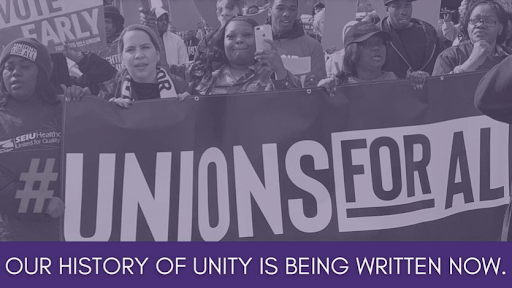
Black workers – and specifically Black women workers – have always been central to America’s labor movement. On the heels of Black History Month and in the spirit of Women’s History Month, we’re honoring leaders like Addie Wyatt who fought the racist and sexist status quo to become a labor and civil rights leader.
During the 1930s, Addie moved to Chicago with her family from Mississippi to escape Jim Crow. As a teenager, she applied for a job as a typist. However, the white bosses wouldn’t hire her because of the color of her skin. She took a job at a cannery, sending stew to soldiers fighting the war.
But then, she realized she would make more money canning than she would have as a typist. Why? Her union, the United Packinghouse Workers of America, had won a contract that guaranteed higher wages and built-in safeguards against the kind of racial discrimination that prevented her from becoming a typist. Addie would go on to be the first woman to lead her union and was an active leader in the fight for racial and worker justice.
Years later, Addie Wyatt said, “I knew I wanted to help other workers. And I found out that I could help by joining with them and making the union strong and powerful enough to bring about change.”
Billion-dollar corporations have always made their money off the backs of Black low-wage workers. That’s why we’re fighting for Unions for All – and a seat at the table for workers.
The history of Black women and their lives is important – not just during Black History or Women’s History Month, but every single day. Share in solidarity >>
